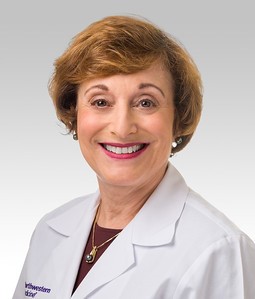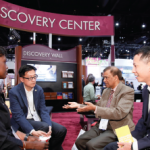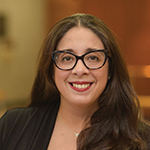Complex problems often require innovative, collaborative solutions—which are the focus of the ACR’s Collaborative Initiatives Special Committee (COIN). Through COIN, the ACR collaborates with a network of organizations to address the challenges facing patients with rheumatic diseases to help improve their quality of life.

Rosalind Ramsey-Goldman, MD, DrPH
One of COIN’s goals is tackling long-entrenched problems of health inequities and disparities within rheumatologic care, such as through The Lupus Initiative, an educational program created to improve the diagnosis, treatment and management of lupus in people disproportionately affected by the disease based on race/ethnicity and gender. Other COIN programs are aimed at advancing professional development, such as the Osteoarthritis Signs and Symptoms Team Education Program that provides educational opportunities for healthcare professionals on signs and symptoms of osteoporosis, and Uniting Collaborators for Innovation, which supports the exchange of ideas among ACR members on projects to advance rheumatology.
Taking the helm of COIN to oversee such initiatives is Rosalind Ramsey-Goldman, MD, DrPH, professor of medicine, Division of Rheumatology, and Solovy/Arthritis Research Society Research Professor, Feinberg School of Medicine, Northwestern University, Evanston, Ill. Dr. Ramsey-Goldman talked with The Rheumatologist about her goals as the new COIN chair.
The Rheumatologist (TR): Why were you interested in becoming chair of COIN?
Dr. Ramsey-Goldman: I was on the ACR Board of Directors when The Lupus Initiative was first funded, and I have been involved with this project ever since. The ACR has been successful in maintaining funding for multiple programs for students, providers and lupus patients. COIN has evolved because of these efforts and is now expanding its reach to support other rheumatic diseases. It is an honor to continue serving the ACR, first as a member of this special committee and now in this leadership role as chair.
TR: What are your plans and goals for the committee over the next couple of years?
Dr. Ramsey-Goldman: We have many projects to oversee, so the first goal will be to ensure that these projects meet their goals. The ACR has a new task force on Diversity, Equity and Inclusion that will make recommendations for initiatives within all aspects of the ACR. COIN will be represented on that task force and we will facilitate this work with the ACR in fulfilling those goals. The currently funded projects are based nationally, and we will explore how to continue our work internationally.
TR: Have you been involved in any previous activities with the ACR?
Dr. Ramsey-Goldman: I have been involved with the ACR on many levels, including serving on the Board of Directors and as chair of the Education Committee, a member of the Committee on Nominations and Appointments, a member of the Scientific Review Council for the Rheumatology Research Foundation and, most recently, a member of COIN before moving up to chair.
TR: On a more personal note, why did you decide to pursue rheumatology as a career? Anything you’d like to add to give members a sense of who you are and what you bring to this position?
Dr. Ramsey-Goldman: I was trained in primary care, and during my electives I rotated in an outpatient rheumatology clinic. I enjoyed having longstanding relationships with my patients and helping them manage chronic diseases. Once I had this experience, I knew this fit how I wanted to focus my primary care training, working with patients who needed support dealing with ongoing medical needs.
[On a more personal note], my hobbies are traveling (obviously on hold now) and sampling all the great food in Chicago. We continue to support our favorite restaurants with takeout orders and I have expanded my cooking skills. My favorite summer dish was an heirloom tomato gratin and, for the fall, a sauteed duck breast with pomegranate molasses sauce served with butternut squash risotto and roasted Brussels sprouts.
Mary Beth Nierengarten is a freelance medical journalist based in Minneapolis.


